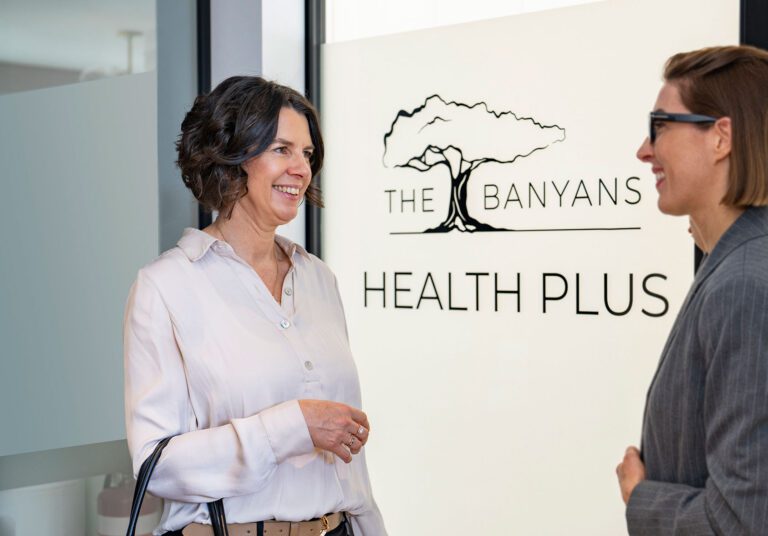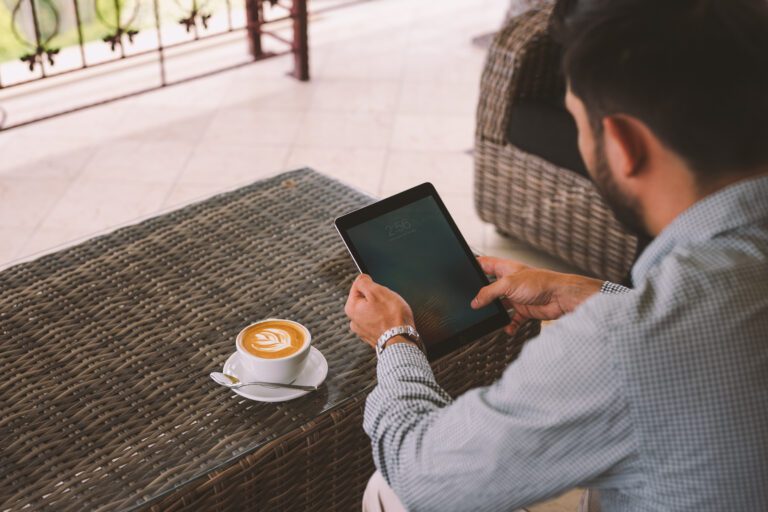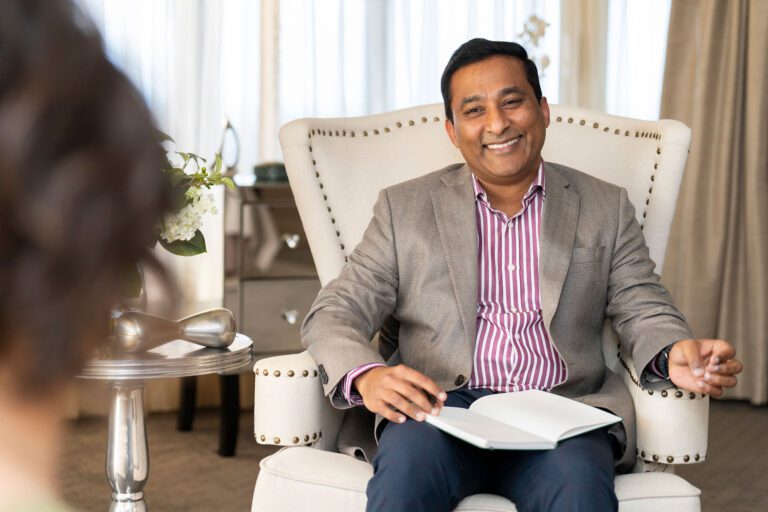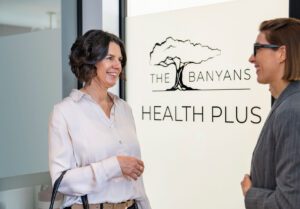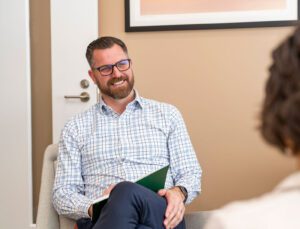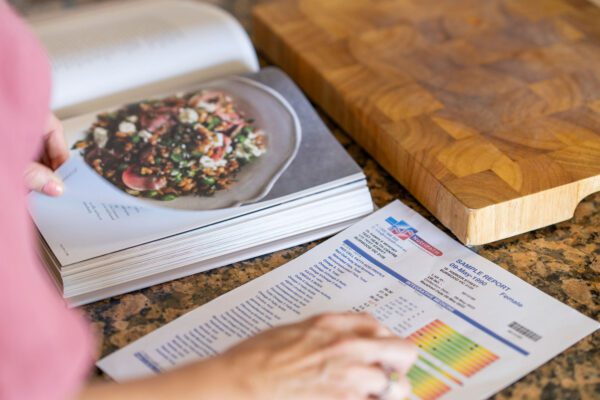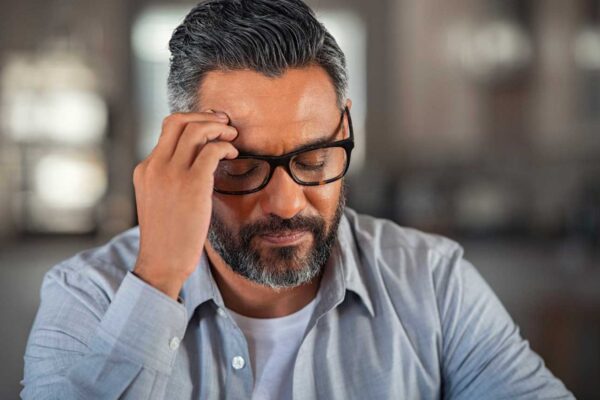
COVID-19 has undisputedly changed our world and the toll on our mental health has led to a modern-life pandemic-related adjustment disorder, currently referred to as COVID stress syndrome.
Australia’s COVID-related fatality rates are four times lower than the global average, but the social and economic effects of the pandemic are still generating symptoms in many that are similar to those who experience Acute Stress Disorder. These symptoms are commonly known as COVID stress syndrome.
What is COVID stress syndrome?
“COVID stress syndrome is the experience of severe stress and anxiety symptoms as a result of COVID-19 and its impact on the community, relationships, and financial situations,” The Banyans Health and Wellness Clinical Director Peter Hayton says.
“The influence of the pandemic – including social isolation, job loss, financial strain, separation, limited travel, and an unknown end date – has seen these symptoms become part of our lives.
One of emerging consequences of COVID-19 is more and more people are experiencing severe stress and anxiety symptoms as a result of the pandemic.
A 2021 Australian study undertaken through Flinders University has found people are exhibiting significant traumatic stress symptoms as a result of the ongoing global pandemic. The study found traumatic stress reactions to future, indirect trauma exposure suggested COVID-19 is also a traumatic stressor that could lead to Post Traumatic Stress Disorder (PTSD) symptomology, despite COVID-19 not fitting into the diagnostic criteria for PTSD.
Of the 1,040 people in the study across five countries, 13.2% of the participants were noted as PTSD-positive, despite the types of ‘exposure’ to COVID-19 events – such as lockdowns, isolation, and financial stress not fitting the PTSD event criteria.
The global pandemic has exacerbated other related mental health problems such as anxiety, depression, psychosocial functioning, and pre-existing PTSD.
“Thankfully, Australians know it’s a good thing to reach out for help,” says Peter. “The Banyans Health and Wellness quarterly report for April-June showed mental health enquiries jumped 26% from the previous quarter to 1,448. This was an increase of 66% over the same period in 2020.”

Is COVID stress syndrome real?
Yes, it is.
Prior to COVID-19, the World Health Organization (WHO) estimated a quarter of people worldwide would suffer from poor mental health concerns in their lifetime. In June 2020, it was estimated around 40% of people globally were experiencing poor mental health or substance misuse.
Some experts believe the numbers could be significantly higher, as the occurrence of anxiety, depression, trauma, and stress-related disorders steadily rises as the pandemic continues.
The Australian government provided almost 11.5 million MBS-subsidised mental health-related services between March 2020 and January 2021, while Lifeline recorded a 10% increase to 85,000 in calls requesting help from December 2020 to January 2021. This was 21.4% higher than similar dates in 2019.
Between the same dates, Beyond Blue received 22,000 contacts, a jump of 22.7% from the same time in 2020, and up 29.6% from a similar period in 2019.
“We will continue to see the mental health ramifications of this worldwide health crisis for many years after the world returns to its post-COVID normal,” says Peter.
The syndrome… is primarily associated with poor mental health and socially disruptive consequences such as panic buying, excessive avoidance, and unhelpful ways of coping during isolation.
Symptoms of COVID stress syndrome
- Fear of danger and contamination
- Panic buying and excessive online purchasing
- Stress and trauma
- Heightened state of anxiety
- Sleeplessness
- Difficulty concentrating
- Anger
- Changing eating patterns – take away, eating more or eating less
- New and increased substance abuse – alcohol, prescription medicines, and illicit drugs
- Chronic health problems are getting worse – and putting off going to a health practitioner
Who has COVID stress syndrome?
Anyone can develop COVID stress syndrome. According to a Black Dog Institute report, those most at risk of developing COVID stress syndrome, are:
- People with pre-existing anxiety disorders and mental health problems, as they experience significant anxiety and distress during a disease outbreak.
- Health care workers (including nurses, doctors, and auxiliary staff) have high levels of anxiety during pandemics. Overseas medical staff have reported high levels of distress through watching patients die who could have, under usual circumstances, been saved. This type of moral injury is likely to have long-term consequences on the mental health and morale of staff involved.

- Those experiencing quarantine. Quarantine is an unpleasant experience and can have long-term negative psychological effects. A recent review found as many as a quarter of patients in quarantine had trauma-related mental health problems, and these symptoms could continue for a number of years.
- The unemployed and casualised workforce are at increased risk of poorer mental health during times of economic instability and during pandemics. High job insecurity is associated with stress, financial strain, poorer health and increased rates of depression and anxiety.
Tips to help manage COVID stress syndrome
It is important to note that not one thing by itself will help stress, anxiety, PTSD or COVID stress syndrome.
You need to look after yourself holistically and seek help. There is not one quick fix. Reach out by talking to your GP or specialist.
- Be kind to yourself – don’t criticise yourself for how you feel. It’s normal to have strong emotions when facing a life-altering event. Remember the world hasn’t been through this before, not with the connectiveness of the internet and our ability to see the suffering throughout the world. Be kind.
- Listen to some music – or sing a song (even off-key!). We all know music makes us feel good, and research shows dopamine levels increase up to 9%, while cortisol levels decrease when people listen to music. This increase in dopaminergic neurotransmission improves mood and affect, while a decrease in cortisol reduces feelings of stress and anxiety.
- Spend time in nature – every day if you can. Spending time in nature, breathing deeply, and getting away from technology improves your mood, helps you feel more relaxed, and can help with your physical health. Being outside in a natural environment can reduce feelings of stress or anger and can help you be more active and improve your physical health.
- Eat healthy, nutritious meals – although changing your diet is a long-term strategy, eating something healthy and nourishing today can help improve your mood and energy levels.
- Sleep – sleep is an essential function that allows your body and mind to recharge. Healthy sleep also helps the body remain healthy and stave off diseases. Without enough sleep, the brain cannot function properly. Adults should aim for a minimum of seven hours each night.
- Routine – stick to a schedule for eating, sleeping, showering, cleaning the home. Repetitive daily routines are calming and can help reduce anxiety, while helping you take control of your day
- Exercise when you can – even as little as walking 15 minutes a day can help distract you, allowing a reset of your emotions. Physical activity and relaxation techniques are valuable tools to help you remain calm and continue to protect your health during this time. The World Health Organization recommends 150 minutes of moderate-intensity or 75 minutes of vigorous-intensity physical activity per week, or a combination of both.
- Limit your news and social media consumption – news organisations make money when you click on their stories, so they post worst-case scenarios to lure you in. This keeps your emotions running high, which is why setting viewing limits and timeframes for both yourself and your family can help with your mental health.
- Try meditation or mindfulness – both are helpful in retraining the brain to be calmer and less anxious. Research shows they help to increase your positivity and reduce negative thinking.
Related: Music Therapy, Voices, and Mental Health Recovery
Related: Anxiety and self-compassion – when it’s time to ask for help

How to get help for COVID Stress Syndrome
Seek help – talk to your General Practitioner. GPs in Australia can provide assistance consistent with the principles and actions of psychological first aid to people who have experienced a traumatic event or are needing help throughout the pandemic. They can assist you in reducing initial distress and will provide support to promote adaptive coping practices.

The Banyans Health and Wellness is a private treatment centre working with people experiencing an anxiety disorder, chronic stress, addiction, PTSD, and other co-occurring conditions.
Our holistic approach incorporates medical, psychological, and natural therapies to ensure highest standard of research-based treatment and support while helping you develop a plan for recovery.
The Banyans Health and Wellness is available 24/7 to help you begin your journey towards a life with positive mental health. You can call anytime on +61 1300 226 926 or submit an online enquiry to begin learning how we can help you rediscover the fullness of life.




